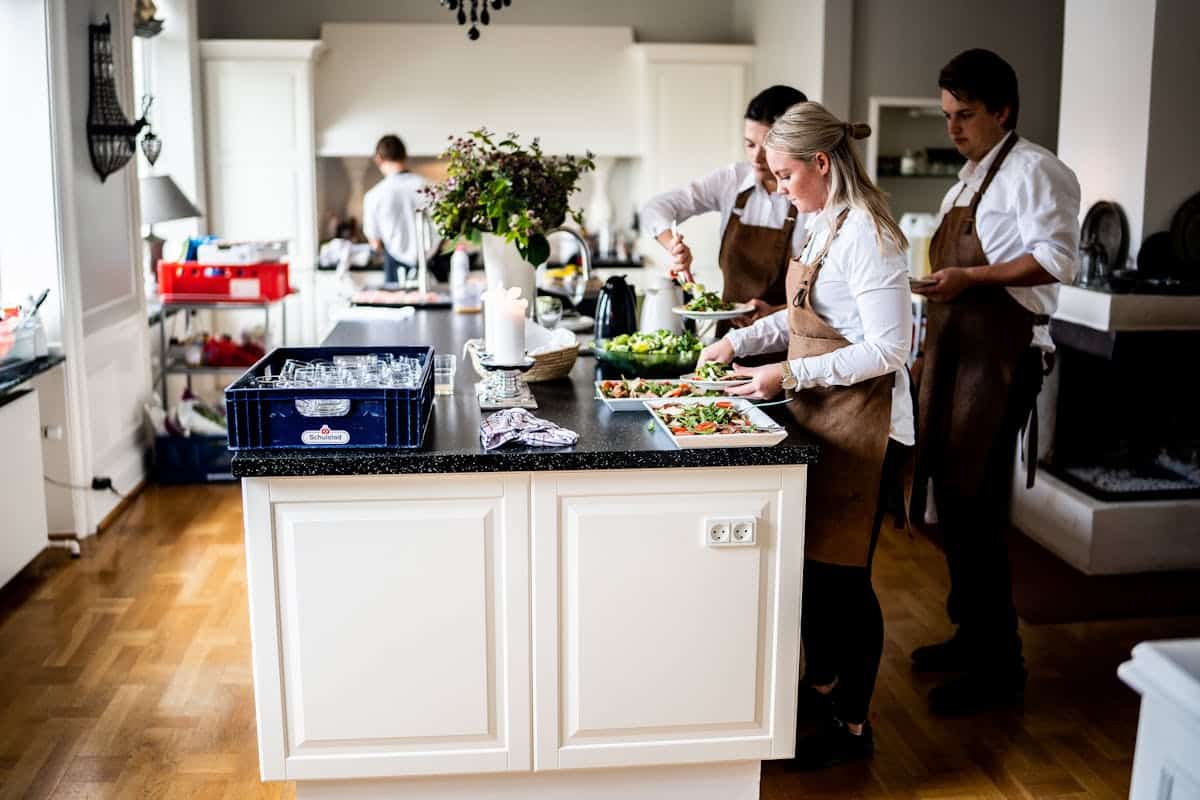Table of Contents
If you love cooking in your home environment, and you’re constantly pushing yourself to learn more about various ingredients and cooking styles, you might thrive as a professional chef. But what exactly does it take to become a professional chef? And how do you get there as an amateur?
Get Started in Your Own Kitchen
As you might imagine, the best way to get started on your path to becoming a professional chef is to build and exercise your skills in your own kitchen. This is your opportunity to learn some of the most elemental cooking techniques, and your opportunity to experiment with different types of foods and recipes. You’ll be in the comfort of your own home environment, independent from any form of external pressure or expectation, so you can begin growing comfortable with your own set of skills.
Working in an outdoor kitchen is especially attractive. There, you’ll be able to enjoy fresh air and sunshine while you cook your favorite meals, and you’ll even have a better opportunity to entertain guests – and get feedback on your latest culinary creations.
Determine Your Own Aptitude
After a few months to years of practice in your own kitchen, you’ll have a pretty good sense for whether this is the profession for you. However, you should do some thorough introspection before you move forward, as becoming a professional chef isn’t a good fit for every home cooking enthusiast.
- Passion/interest. What is it about cooking that you like? Do you just like experimenting with new recipes and creating things that taste good to you? Or do you enjoy pushing the art form to new heights while entertaining other people? Are you genuinely passionate about the culinary arts, or is cooking more a means to an end for creating nutritious and delicious dishes?
- Personality/temperament. Recreational cooking is fun, but being a chef is highly stressful for most people. It is a very demanding career, and not necessarily a lucrative one. At the highest levels, competition is very cutthroat, and even a single catastrophic incident could derail your career. You may or may not have the personality or temperament to thrive in this environment.
- Dexterity. The most successful professional chefs are not only creative geniuses, but they’re also masters of dexterity. Do you have the physical skill to keep up with competitors in this environment?
Training and Education
If you feel like you’re a good fit for becoming a professional chef, there are several paths you can take to get there:
- Culinary school. The most obvious route is to go to culinary school, which is an educational environment designed to teach and produce professional chefs. It’s going to cost you some time and money, but it’s also going to equip you with the knowledge and experience you need to be successful.
- Apprenticeship programs. Alternatively, you can get involved with an apprenticeship program. There, you can work alongside more experienced professionals and learn from them directly.
- Higher education. Depending on what type of path you’d like to take as a professional chef, it may be worth your time to pursue higher education, such as getting a business degree.
- Certifications. And of course, there are many professional certifications you can earn on your path to becoming a professional chef.
Experience
No matter what, you’ll also need to get some practical experience. It’s not hard to find a job as a line cook, or some other entry-level position in the culinary arts. But no matter where you start, it’s important to make the most of the experience you get – and keep climbing the proverbial ladder.
Ongoing Learning and Development
Even the best professional chefs commit to ongoing learning and development, so they can refine their skills and become even better.
- Mentorships. There are many viable strategies that can help you find a mentor. Regardless of which ones you use, you should focus on finding a mentor who’s a good fit for your goals and learning style. Meet with your mentor regularly and try to absorb their wisdom.
- Networking. Networking is also valuable in the culinary industry. The more people you meet, the more perspectives you’ll be exposed to, and the more professional opportunities you’re going to have.
- Exposure. Also try to expose yourself to as many different styles of cooking and food preparation as possible. It’s going to help you build knowledge, but also expand your creative horizons.
- Challenges. Keep challenging yourself as well. Instead of allowing yourself to fall into a rut, keep dabbling with new recipes and experiments.
Not everyone is cut out to be a professional chef, and not everyone wants to be. But if you have a genuine desire and genuine qualifications to become a professional chef, don’t let anything (or anyone) get in your way of following this path.


